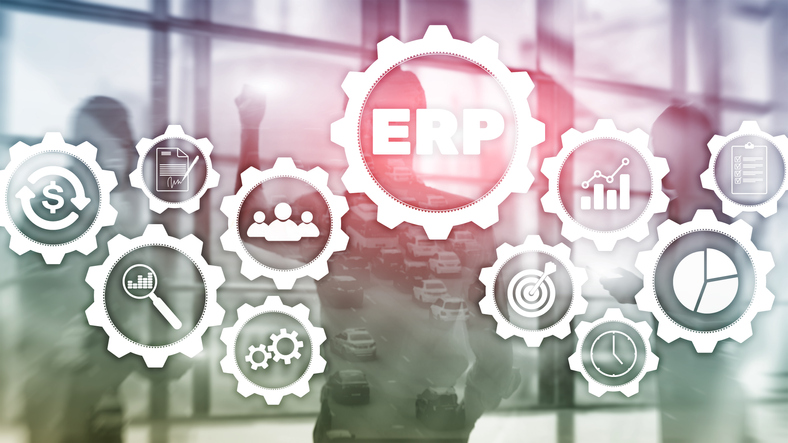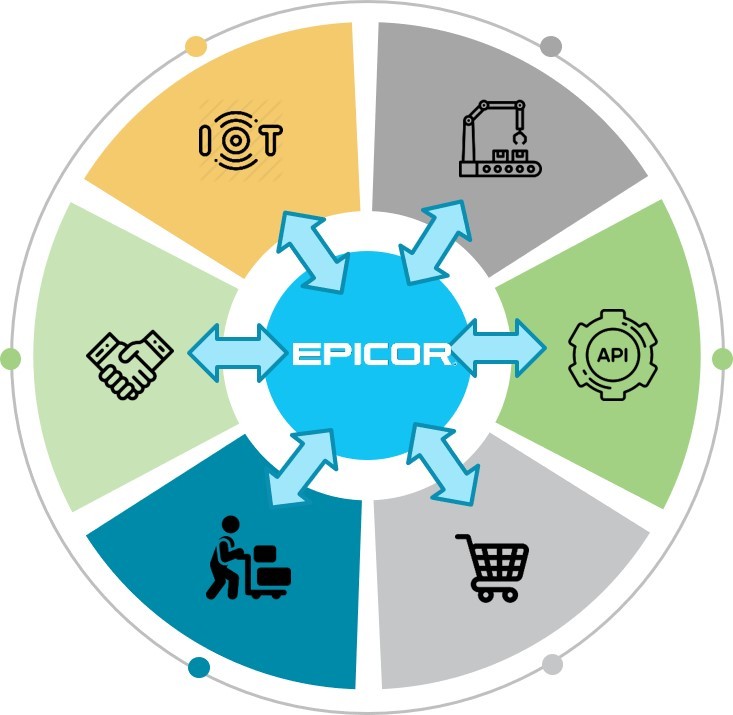
Why Implement an ERP System?
Why Implement an ERP System?
 If you asked your IT personnel what the advantages of implementing an Enterprise Resource Planning (ERP) system, in all likelihood, they’d tell you that it could be revolutionary or absolutely destructive depending on their past experiences. The key to making it revolutionary revolves around partnering with experienced ERP consultants who know how to implement and manage an ERP system on-time, on-budget, within the scope described to you during the initial phases of the implementation.
If you asked your IT personnel what the advantages of implementing an Enterprise Resource Planning (ERP) system, in all likelihood, they’d tell you that it could be revolutionary or absolutely destructive depending on their past experiences. The key to making it revolutionary revolves around partnering with experienced ERP consultants who know how to implement and manage an ERP system on-time, on-budget, within the scope described to you during the initial phases of the implementation.
Below you will find some of the reasons why implementing an ERP system like Epicor ERP, can be revolutionary.
Increased Productivity
Implementing an ERP system streamlines and automates your business processes improving productivity and organization. This dramatically reduces the time spent on business tasks such as manual entry, tracking time sheets, generating reports, and the time spent trying to fix problems related to using multiple platforms across multiple departments. Because an ERP aggregates data into a single database, you are able to tie information across every department to gain meaningful insights in real-time and automate reporting so that your company’s internal resources can be leveraged for analyzing that information rather than collecting it.
Happier Customers
With the advent of online shopping and services, competition has never been stiffer for businesses. If you don’t keep your customers happy, another company will. Customers who are able to get their questions answered quickly and without much effort are happier customers. This is why implementing an ERP system is important. It not only provides you with instant access to a customer’s ordering history and information, but it also allows greater interaction between you and your suppliers as well as you and your customers. By using the Customer Relations Management (CRM) , customer data can be accessed across business operations, so you’re not only able to better handle the needs and concerns of your customers, but also use the information gleaned from customer order history to refine your sales strategy and improve lead generation.
Increased Mobility
 Work is no longer just something that takes place in an office. Today, people are working while on vacation. They’re working from home. They’re working anywhere that life takes them. The Epicor ERP system is mobile-friendly, meaning that you and your employees are able to access important information and continue to contribute in even the most remote places in the world (so long as they have an internet connection, that is).
Work is no longer just something that takes place in an office. Today, people are working while on vacation. They’re working from home. They’re working anywhere that life takes them. The Epicor ERP system is mobile-friendly, meaning that you and your employees are able to access important information and continue to contribute in even the most remote places in the world (so long as they have an internet connection, that is).
Regulatory Compliance
Still wondering why you should implement an ERP system at your company? An important factor in a powerful ERP solution is that it can track regulations within your industry and alert you when there are regulatory changes, ensuring that you stay in compliance without stress. While this is helpful at the local level, it is particularly important for businesses with a global reach and varying regulations in the countries where they do business. Additionally, the ERP’s auditing tools provide documentation and generate reports so that you can easily show your compliance to any governing authority that asks.
Reduces Disconnect
Multiple platforms can provide conflicting information and often result in single departments working in a bubble, even though they may be largely dependent upon other departments for important information. This not only creates a disconnect between your departments, but can also result in decreased productivity and time-consuming errors. An ERP system places all of your departments in the same room, with the same access to information and a built-in accuracy that cannot be found in traditional business methods.
Scalability
Businesses require customization within their systems. They grow, they shrink, and their needs change. Epicor ERP provides you with that level of flexibility by incorporating lean manufacturing tools that enable operational best practices.
Not to mention, your ERP solution should scale as well. The team of software engineers at Epicor are constantly updating their systems to address new problems that never existed before, so that all of their customers receive exactly what they need.
Customized Reporting
Reports are necessary for a variety of reasons, and your ERP system uses information stored in the centralized database to generate professional reports for any business reason you may have. Your employees can easily access analytics data needed for the report without help from IT. These are just some of the benefits of an ERP system. For more information about how you can implement an ERP within your company, contact EstesGroup today!







 I just need to get this off my chest – so bear with me.
I just need to get this off my chest – so bear with me.